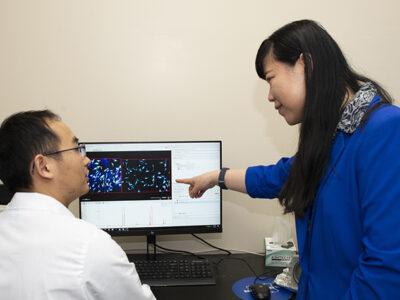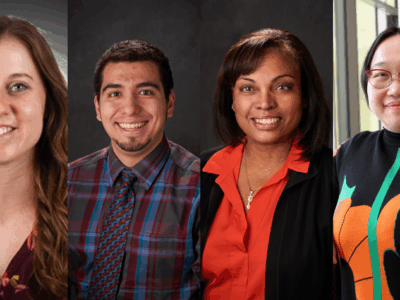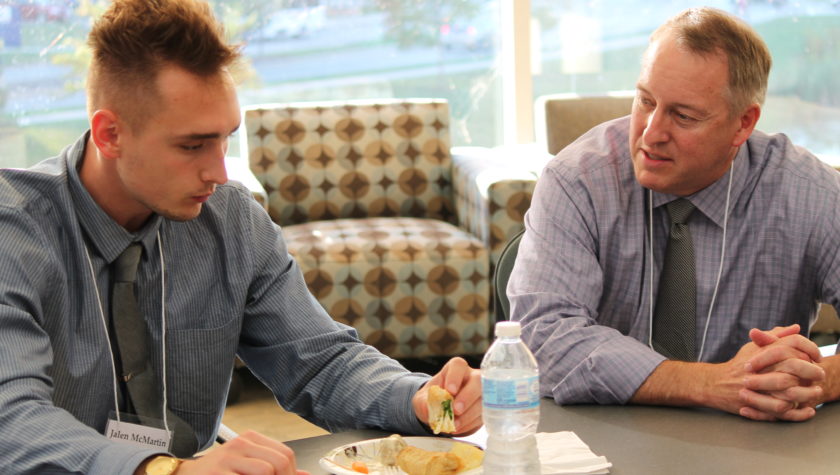
7
December

By Katie Ginder-Vogel
Pharmacists are the most accessible members of the health care team and practice in a multitude of clinical settings. They need to be able to communicate and lead diverse groups of people that include patients, health care teams, and care givers in order to achieve positive patient outcomes. Developing leadership skills can help pharmacists become better providers and patient advocates.
“Every pharmacist faces situational leadership challenges daily in their practice. Leadership training is not just for those pursuing administrative roles within a corporation or health care system,” says Karen Kopacek, associate dean of Academic Affairs and Alumni Relations and associate professor in the Pharmacy Practice Division at the University of Wisconsin–Madison School of Pharmacy.
“It is critical that student pharmacists develop leadership skills to be effective members of interprofessional health care teams,” she adds.
Launching the leadership program
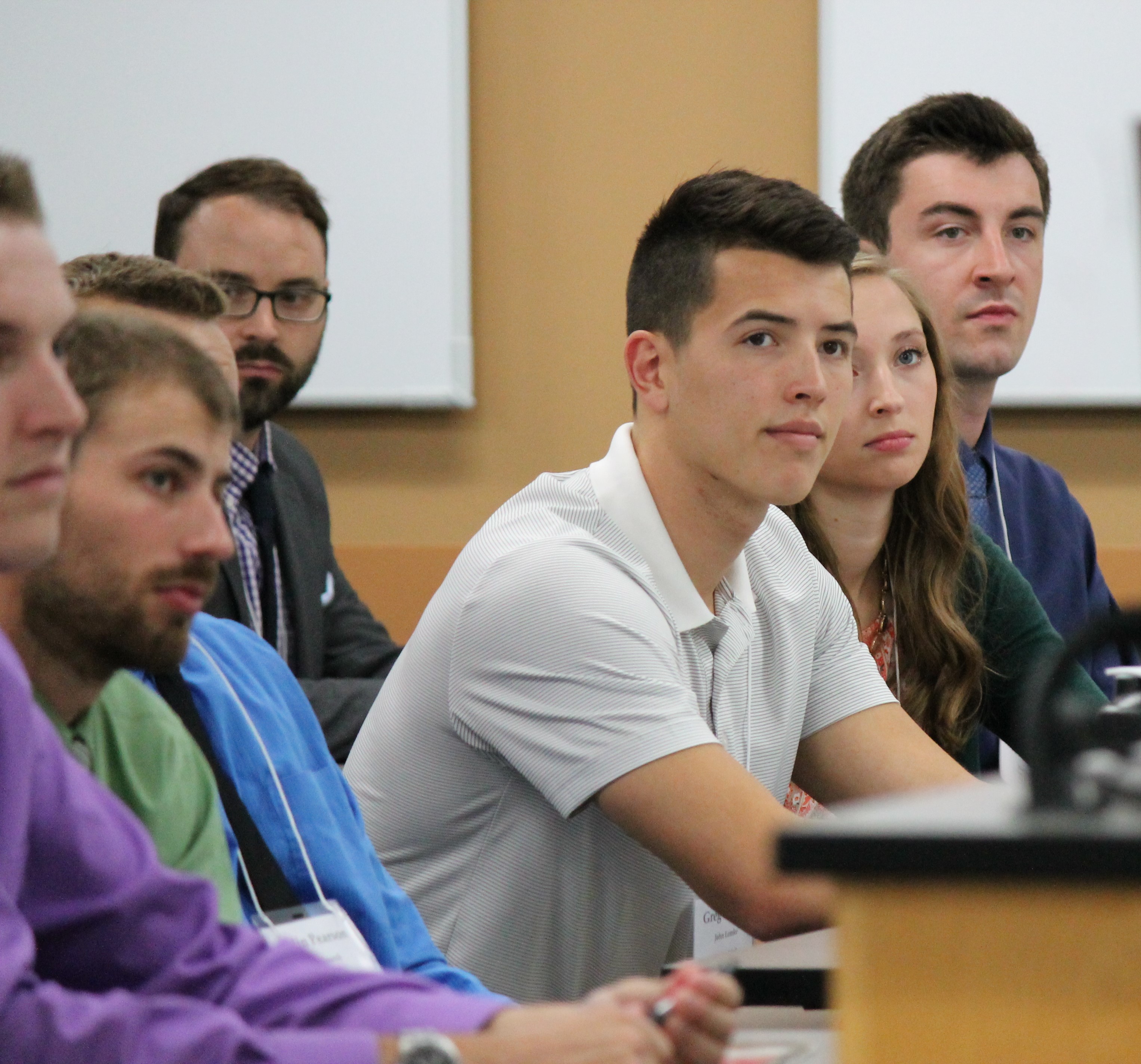
To help PharmD students develop their communication and leadership skills, the UW–Madison School of Pharmacy has established a new non-credit Leadership Certificate and Mentor (LCM) program. Students can apply to LCM in their first year and participate for the rest of their four-year PharmD program.
“The Pharmacy Leadership Certificate and Mentor program is an incredible new development from the School of Pharmacy that brings together pharmacy students with pharmacists who are leaders in the pharmacy field,” says Miranda Kozlicki (DPH-2), a second-year PharmD student in the LCM program.
This is the first year of the LCM program, which has been recognized by the university for its customized integration of the UW–Madison Leadership Framework into a School of Pharmacy non-credit certificate program.
Comprehensive, hands-on approach
A working group from the School of Pharmacy collaborated with the UW–Madison Center for Leadership and Involvement to develop this innovative leadership program, which cultivates students’ leadership skills through a course, targeted activities, specific self-reflection questions, community service opportunities, and leadership conference opportunities, as well as a mentoring relationship that connects students and practicing pharmacist mentors.
“This longitudinal program has and will continue to help me grow in my leadership and networking skills, so that I can become a successful pharmacist and an even better leader.” –Miranda Kozlicki
Students take a class during their first year of the PharmD program and sign up for certificate requirements and mentorship at the end of their first year. The course in the spring semester in the first year is designed to introduce PharmD students to leadership concepts, competencies, and values, as well as soft skills, leadership models and their application to health care, strategies to communicate and resolve conflict, professionalism, and personal branding. Additionally, students are introduced to self-reflection through application of various leadership situations they have experienced. The course serves as the foundation for concepts and skills that can be applied to various activities as the students move through the PharmD curriculum.
“A unique component of the program includes intentionally matching student leadership development with mentorship and reflection,” says Ed Portillo, assistant faculty associate in the Pharmacy Practice Division at the School of Pharmacy, who helped spearhead the initiative as LCM program coordinator.
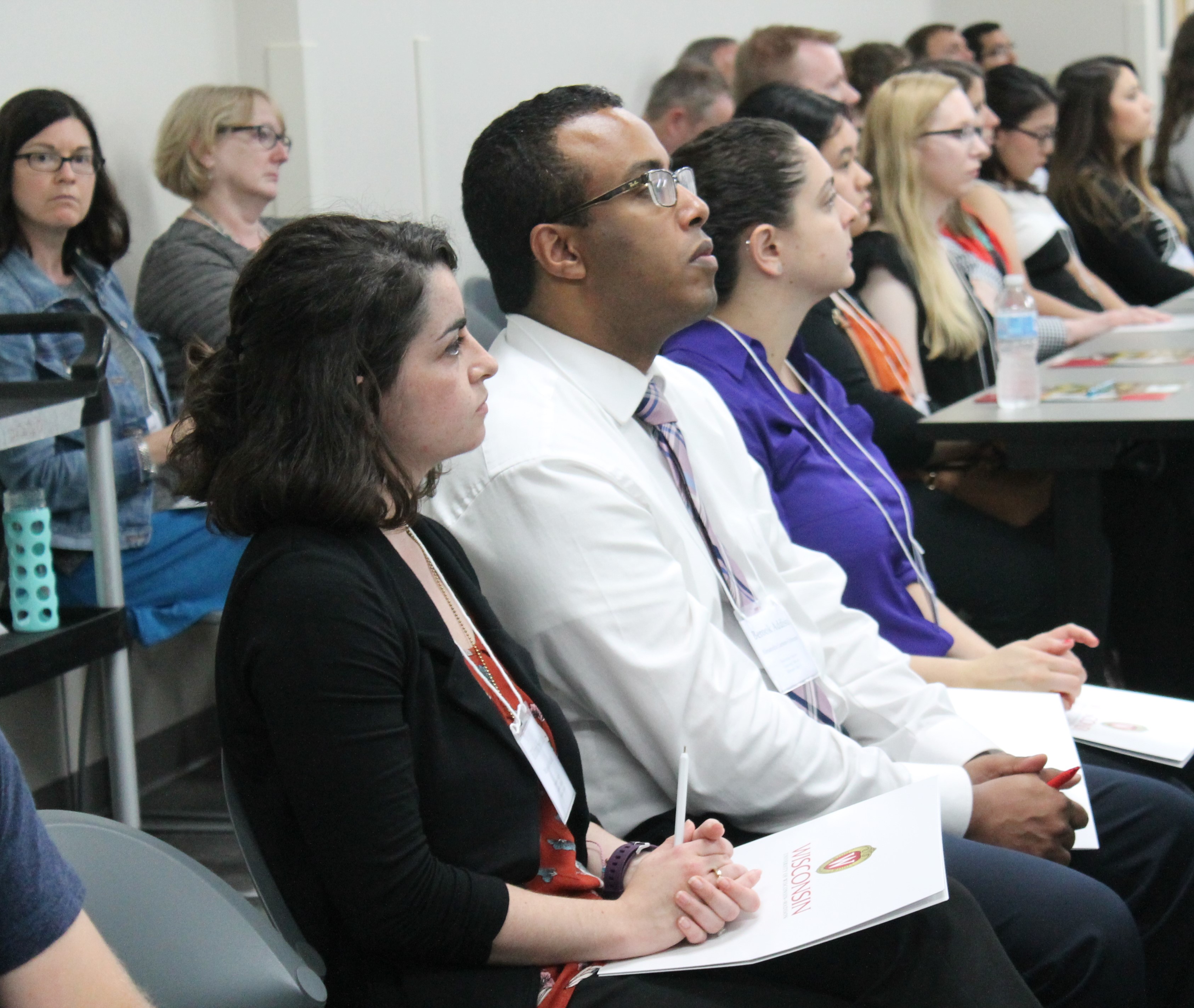
“Students reflect with a mentor on how they can be better, what they are doing well, and moving forward as a future leader, what they need to improve upon. When you have someone experienced and successful, it adds another dimension,” he explains.
From the student perspective, the reflection component is highly valued.
“The part of the Leadership Certificate that I greatly appreciate is its emphasis on reflection,” says Kozlicki. “Through everything I learn in pharmacy school, in and out of the classroom, I am gaining the ability to self-reflect on my experiences, accomplishments, and challenges, while applying the leadership competencies and values.”
Erik Burns, assistant professor and chair of the School of Pharmacy’s Division of Pharmacy Professional Development, cites the program’s unique combination of coursework and practical experiences, which evolved from the working group’s focus on the School of Pharmacy’s student population when creating the program.
“It’s not theory-based—it really is a hands-on approach that allows PharmD students to struggle in a safe place, try out different styles, and be part of different circumstances and groups while they identify their process and their model,” Burns says. “It really is a crawl-walk-run experience that you can grow into as a learner.”
Learning with mentors
The mentorship component goes hand-in-hand with the leadership certification. Practicing pharmacists are able to model the ways in which they incorporate the leadership framework into their personal and professional lives, guiding student pharmacists by example.
The mentorship program aims to match PharmD students with highly effective leaders who have strong values and command respect.
“We want pharmacist mentors who apply those values and competencies to their professional lives,” says Portillo. “The literature on mentorship and leadership demonstrates that you can teach leadership skills through intentional mentorship, so we provide targeted activities for students and their mentors every semester.”

Currently, there are 33 volunteer pharmacist mentors working with 33 DPH-2 students.
“The LCM program’s emphasis on formal mentoring is very distinctive among leadership programs,” says Portillo.
Mentors agree to work with one PharmD student for three years, and teams meet once per semester but can meet more often if they so choose.
Aaron Steffenhagen (PharmD ’01) is a clinical pharmacy manager for UW Health University Hospital and volunteers as a LCM mentor because he recognizes the importance of leadership skills in the profession.
“As pharmacists take on enhanced roles with greater accountability, developed leadership skills are critical for ongoing success,” Steffenhagen says. “Serving as a mentor in the LCM program allows me to stay connected with future pharmacists in training and to give back to the profession’s development.”
Students are responsible for completing pre-meeting activities, reaching out to their mentors to coordinate meetings, and bringing an agenda with specific discussion activities to each meeting.
“I have really enjoyed building a trusting relationship with my mentor, Dr. Ellina Seckel, the associate chief of Ambulatory and Specialty Services at the Madison VA Hospital,” says Kozlicki. “We discuss leadership topics and my career aspirations, and I learn from my mentor’s career successes.”
Designing through collaboration
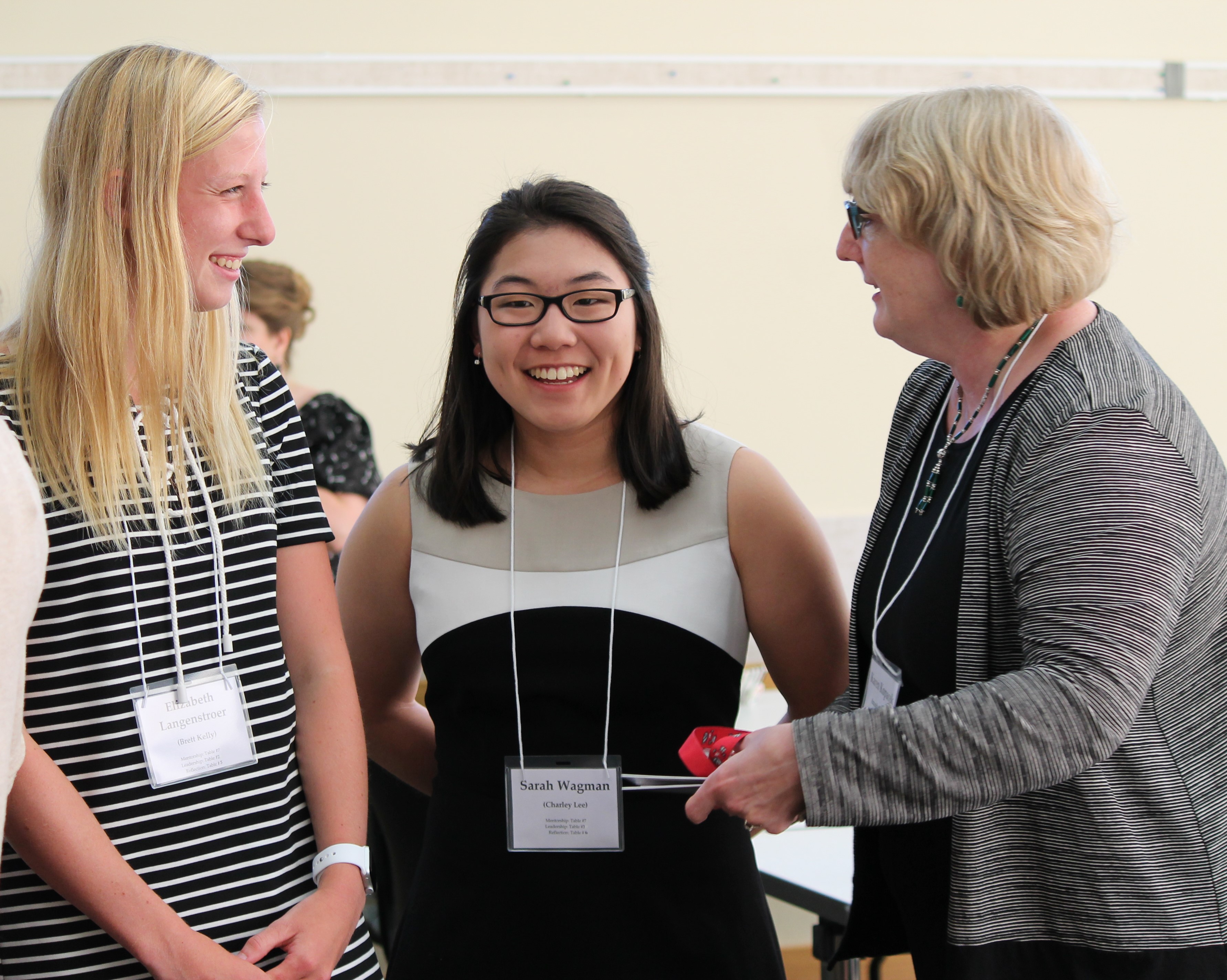
The process of creating the Leadership Certificate and Mentor program began in 2016 with a working group that included School of Pharmacy members:
- Ed Portillo, assistant faculty associate in the Pharmacy Practice Division
- Karen Kopacek, associate dean of Academic Affairs and Alumni Relations and associate professor in the Pharmacy Practice Division
- David Mott, professor and chair of the Social & Administrative Sciences Division
- Erik Burns, assistant professor and chair of the Division of Pharmacy Professional Development (DPPD)
- Brett Kelly, assistant professor in DPPD
- Rebecca Beebe, senior student services coordinator
Members from the UW–Madison Center for Leadership and Involvement included:
- Mark Kueppers, interim director and assistant dean
- Donna Freitag, leadership specialist
- Barb Kautz-Witwer, assistant director of Leadership Development
Education graduate student Katie Beister rounded out the group.
During the program development phase, the working group looked at ways to make the experience unique for PharmD students and solicited feedback directly from students. They spoke with students about what pharmacy students would want in a leadership program and conducted a focus group on different types of programming.
“We took a student-centered approach to develop the program,” says David Mott, professor and chair of the Social & Administrative Sciences Division at the School of Pharmacy. “Our planning team included activities in the program that would develop areas of leadership that students felt they needed to improve. Additionally, we included the mentoring program in response to the students’ desire to connect with and learn from pharmacist leaders.”
Building on success
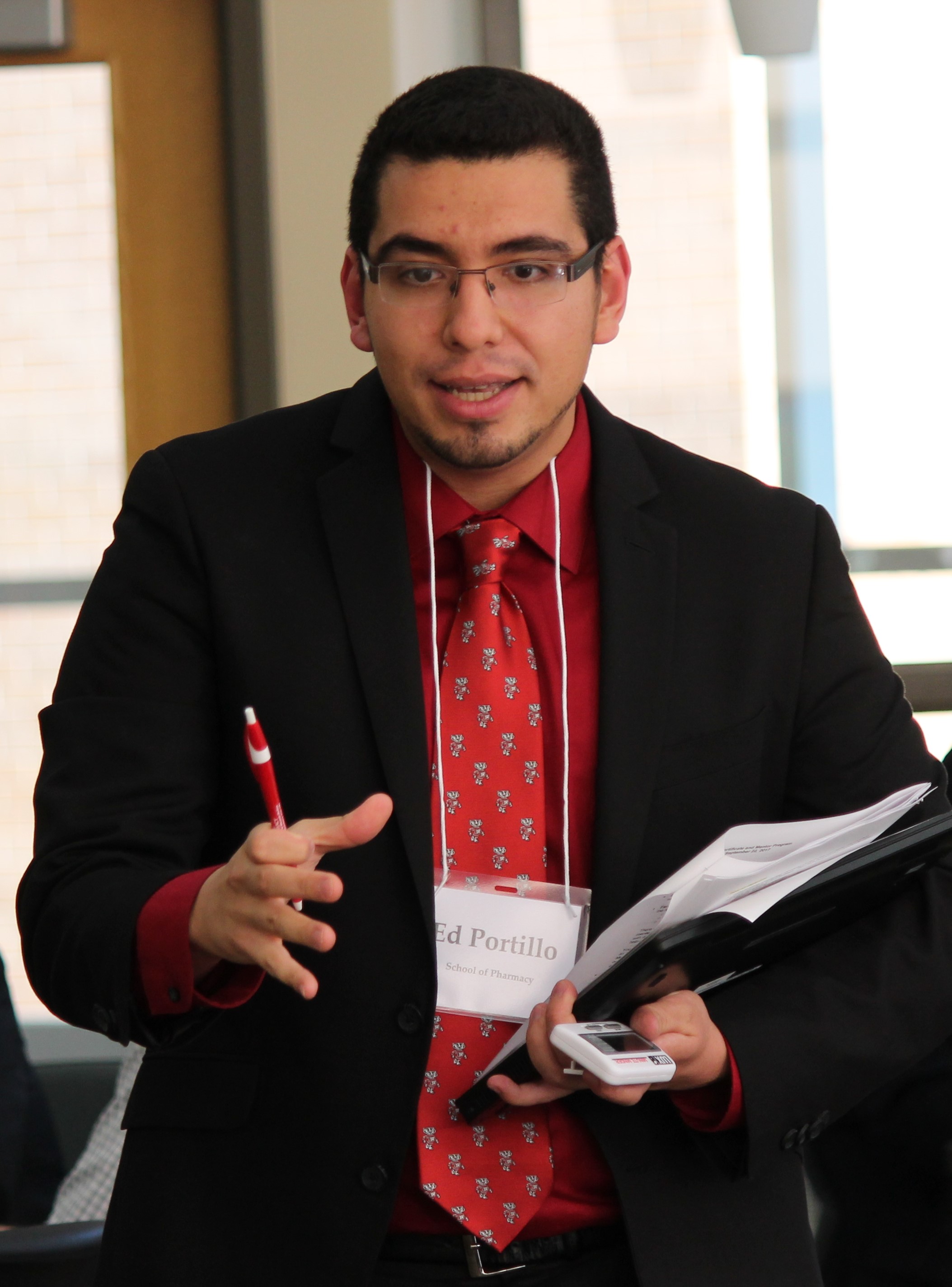
The majority of the LCM program takes place outside the classroom, so students are doing it on their own time.
“It speaks to the caliber of the PharmD students who want to do this,” says Portillo. “It’s really encouraging to see even in the first year of the program students saying ‘yes’ to dedicating time they could otherwise use to study, work, or just have fun to focus on being a better leader for the patients they’re serving. To me, that’s really amazing.”
Portillo says that the program is running smoothly in its inaugural year.
Going forward, the LCM program will have support for coordinating mentor and mentee matches from the School of Pharmacy’s Division of Pharmacy Professional Development (DPPD).
“We have a two-year longitudinal assessment of the LCM program that we’re completing so we’ll get more data, but the qualitative feedback from students has been very positive,” he says.
For many PharmD students, there is confidence that the new program is already beneficial to their professional development.
“This longitudinal program has and will continue to help me grow in my leadership and networking skills, so that I can become a successful pharmacist and an even better leader,” Kozlicki says.
To learn more about volunteering as a mentor in the School’s Leadership Certificate and Mentor program, email Ed Portillo at edward.portillo@wisc.edu
To apply to become a pharmacist mentor, submit this short form.


